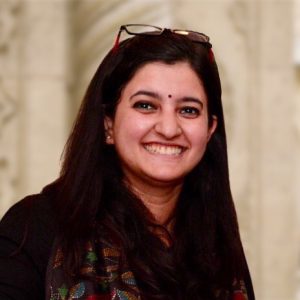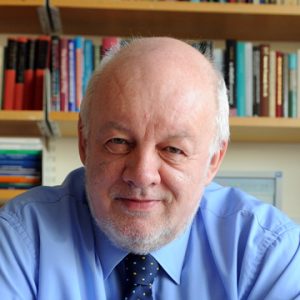 It is with great sadness that we announce the death of Michael Banks on 21 March 2024.
It is with great sadness that we announce the death of Michael Banks on 21 March 2024.
Michael, who was a Reader in International Relations when he retired in 1999, taught in the Department for 38 years. He will be remembered for his engaging, magisterial lectures on IR theory and for his generosity with his time in discussing new ideas with students of all levels. He was also a constant source of advice and support to the student editorial teams at Millennium: Journal of International Studies.
Michael first joined the Department as a student in 1955 on the BSc (Econ) International Relations. After completing his degree in1957, he spent the next four years studying in the States, completing a two year MA in Political Science at Lehigh University, before heading to Boston where he started a doctorate in African Studies on a joint programme run by Harvard, MIT and Brandeis. He returned to the School in 1961, taking up a lectureship in the International Relations Department. Over the course of his academic career Michael also taught at universities in Nairobi, Lusaka, Geneva, Stuttgart and Frankfurt and spent time at USC and Dartmouth College.
Michael was born in 1936 in Hythe, Hampshire, where his father worked as a professional skipper on racing yachts owned by wealthy English industrialists. As a small child, he was briefly evacuated to the Oxfordshire countryside during the Second World War, but returned to the family home in Hythe for the final years of the war. There he observed the build-up to D-Day and witnessed the firebombing of Southampton across the Solent – an event which left a deep impression on him and was the root of his longstanding pacifism. At age 13 he won a place at Brockenhurst Grammar School where he thrived academically, eventually securing a place at LSE.
At LSE, both during his BSc studies and the first years of his academic appointment, Banks was initially mentored by C.A.W Manning. At the time, the Department and its undergraduate degree programme were deeply imbued with an approach to the study of international relations that is now charactersied as the ‘English School’. He fell out with Manning (or Manning with him) in the late 1960s, when Michael started to engage with the so-called ‘behavioural revolution’ in North American IR. This was the start of a characteristic feature of Michael’s academic and educational career – an interest in the theoretically new and cutting edge. This manifested itself in two important inflection points in Michael’s work.
First was his engagement with Thomas Kuhn’s work on the sociology of knowledge, the structure of scientific revolutions and the role of paradigmatic shifts in knowledge structures and ways of knowing. Michael appropriated Kuhn’s core arguments to characterise the state of IR theory in the late 1970s and early 1980s as an incommensurable ‘inter-paradigm debate’ between realist, pluralist and structural accounts of global politics. Informing the core of his lectures for both the core second year course in ‘International Politics’ and in his MSc course in ‘Concepts and Methods of International Relations’, the ‘inter-paradigm debate’ offered a framing of the discipline that shaped a generation of scholars and scholarly debate.
Second was his engagement from the late 1970s onwards with John Burton’s ‘world society’ approach and, in particular, Burton’s then avant-garde arguments for a ‘facilitated analytical problem-solving’ approach to resolving violent conflicts. Along with colleagues such as John Groom, Chris Mitchell, Tony deReuk, Richard Little and Margot Light, Banks was a member of the Centre for the Analysis of Conflict which sought to develop both the theory and practice of what is now widely characterized as ‘second’ or ‘multi-track’ diplomacy in seeking to bring an end to violent conflicts. The exploration and development of these ideas underpinned his edited volume, Conflict in World Society (1984) and Handbook of Conflict Resolution: The Analytical Problem Solving Approach (1996 with Chris Mitchell).
For many, Michael will be remembered for his brilliant and inspiring teaching – both in his lectures (which were delivered with a certain panache and were always packed) and in the seminar room where he encouraged thought provoking open-ended conversation and dialogue. He was a dedicated teacher who cared deeply about not only what students were taught, but also more importantly, how students were taught. He had very strong views on what a university education should entail. He came to abhor what he saw as the neo-liberalisation of higher education in the form of the RAE/REF and the external oversight of teaching quality in the form of the then QAA – though, ironically, his underlying pedagogy would tick many of the contemporary boxes regarding what constitutes an outstanding teaching and learning experience for students.
In his leisure time, Michael had a deep love for sailing (which he got from his father) – regularly engaging in early Sunday morning competitive sailing at the Queen Mary reservoir west of London in all kinds of weather and doing so until his mid-60s. He also had a love for horticulture. In later years, not having a garden of his own, he would vicariously satisfy this interest through visits to stately gardens and gifting friends with small fruit trees, plants, shrubs, gardening tools and books.
During his time at LSE Michael supported and encouraged many young scholars and colleagues who have gone on to become senior figures in the discipline. Many of those individuals and others across the wider IR community will long remember his kindness and generosity in helping them on their professional journeys. He will be greatly missed.
A public memorial event will be arranged with the IR Department for later in the year.
 It is with great sadness that we announce the passing of Vhon Barrett.
It is with great sadness that we announce the passing of Vhon Barrett.








 It is with deep sadness that we are sharing the news that our Language Centre colleague Doris Hermann-Ostrowski passed away unexpectedly on Friday 14 July this year from heart failure at the age of 71.
It is with deep sadness that we are sharing the news that our Language Centre colleague Doris Hermann-Ostrowski passed away unexpectedly on Friday 14 July this year from heart failure at the age of 71.